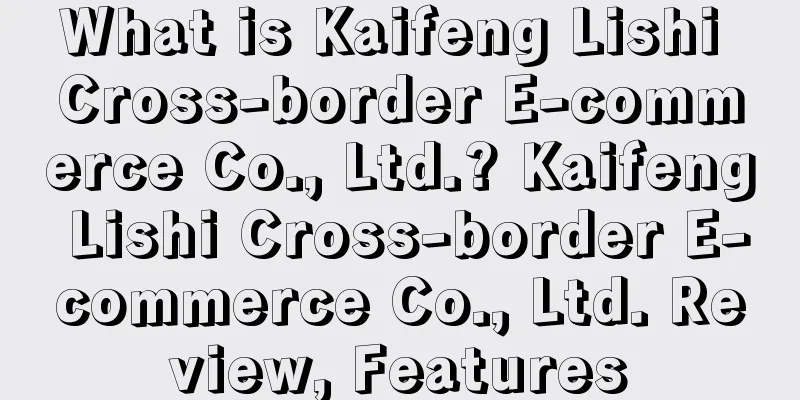Google joins hands with GoDaddy to seek new development in e-commerce

|
Since the outbreak of the epidemic, Google has been expanding its e-commerce business. Recently, Google announced a partnership with GoDaddy, an American company that provides domain name registration and Internet hosting services.
Google said: "Now it will be easier for users to see GoDaddy businesses through search, shopping, image search and YouTube. Through this partnership, GoDaddy merchants can upload their products to Google, create free advertising campaigns, and see the corresponding results. And all this can be achieved only through GoDaddy's online store."
The operation process is simple and sellers benefit significantly
GoDaddy merchants only need to create their product listing pages on the backend dashboard and link them to the Google Merchant Center. Google will automatically synchronize relevant information and optimize the page display effects for different Google products. Afterwards, the big data system will push these products to users who are searching and browsing related products .
Imagine that if the seller's sales market is the United States , their products can appear on Google Search, Google Images, Google Shopping, Google Maps, Google Lens and other pages for free . I believe this will make many Amazon sellers envious, after all, improving search rankings and product exposure is a headache. Google's move is undoubtedly a huge benefit for sellers, not only can it save a lot of advertising costs, but also can bring unimaginable exposure. In this way, it is difficult not to sell the goods!
Google is taking action to expand markets and develop features
According to the editor, the cooperation with GoDaddy is just part of Google 's blueprint to expand its e-commerce sector. The platform had a similar cooperation with Shopify as early as May this year . In addition, Google also hopes to develop the function of product push based on image search to increase retailers' loyalty to the Google Shopping channel .
At the same time, Google is also considering integrating the shopping cart history information collection function, the purpose of which is to collect the products that users have added to the shopping cart during browsing and remind users in a timely manner. This functional plug-in is also a way to maximize the sales of merchants. However, we cannot assert the specific effect, and the evaluation of consumers is the standard for judgment.
Google's constant pursuit of new partners, exploration of new cooperation models, and development of new features are enough to show the giant's determination to expand e-commerce. As for how the industry landscape will change in the future, let time answer the question. Google e-commerce expansion Independent website |
<<: OnBuy completes £35 million in funding to compete with Amazon
>>: Export risk warning to Indonesia, Indonesia becomes the new "epicenter" of the epidemic in Asia!
Recommend
Lord & Taylor reopens, online sales only
Saadia Group won ownership of Lord & Taylor f...
What is Bifang e-commerce browser? Bifang e-commerce browser Review, Features
Bifang e-commerce browser (formerly known as e-co...
What is Amazon Overseas Marketing (Shenzhen Amazon Technology Co., Ltd.)? Amazon Overseas Marketing (Shenzhen Amazon Technology Co., Ltd.) Review, Features
Amazon Overseas Marketing (Shenzhen Amazon Techno...
With a net profit of 490 million in 9 months, is Cross-Border Link going to "make a comeback"?
With a net profit of 496.7 million in 9 months, i...
What is AMZ Seller Browser? AMZ Seller Browser Review, Features
AMZ Seller Browser is a Google Chrome extension th...
Invested 8.8 million! Shenzhen Dama invested in a blue ocean category
"How can a company with absolutely no techni...
Chinese sellers may be caught in the crossfire of trademark applications in the US
In recent years, cross-border e-commerce has deve...
Sellers with hundreds of millions of sellers are selling their stores. Is the "selling oneself" craze coming in the Amazon circle?
Among the many overseas markets, Amazon is the fi...
Shopee 9.9 Super Shopping Festival is here, and the number of orders in cross-border strong categories increased 15 times in the first two hours
On September 9, 2024, Shopee, the leading e-comme...
With an average monthly expenditure of over 4,000 yen, women account for half of the Japanese health functional food market
Japan's Yano Research Institute conducted a c...
What is Mine.Exchange? Mine.Exchange Review, Features
Mine.Exchange is an electronic currency exchange ...
What is B2C? B2C Review, Features
B2C (Business-to-Customer) is abbreviated as "...
What is Fengnian International Freight Forwarding Co., Ltd.? Fengnian International Freight Forwarding Co., Ltd. Review, Features
Fengnian International Freight Forwarding Co., Ltd...
Stay at home this Valentine’s Day, these five categories of products on Shopee may become hot sellers!
However, some Shopee sellers are indignant about ...
SHEIN and Arabic singer Balqees Fathi launch new Ramadan collection
Global online fashion retailer SHEIN has teamed u...









